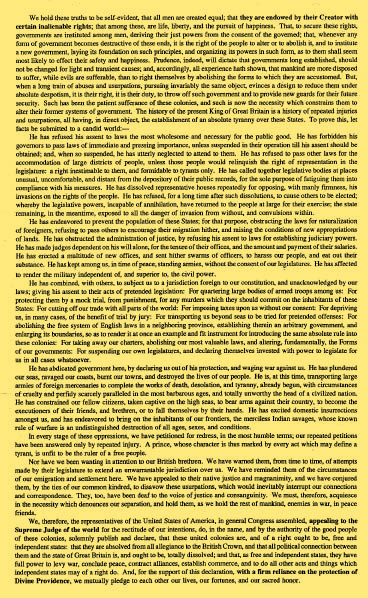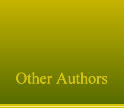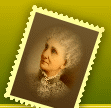America – Cradle For The Second Coming Of The
Christ
CHAPTER IV
The Constitution is Written
The Stormy Constitutional
Convention
How Thirteen Colonies Became the United
States
 The war
was over. Independence from England had been secured. The war
was over. Independence from England had been secured.
Yet even while victory was being celebrated, another
challenge loomed. The document that had united the thirteen colonies throughout
the Revolution was called the Articles of Confederation. Written in 1777
and ratified in 1781 by the Continental Congress, this loose agreement had
given the colonies enough cohesion to face a common enemy, but it fell far
short of what was needed to forge a nation.
Looking at the problems
besetting the fledgling nation and the challenges awaiting her, our Founding
Fathers saw the need for a stronger republican form of government than they had
had under the Articles of Confederation. The Continental Congress faced
a $42 million war debt, but had no authority to raise revenues to pay the
American patriots who had mostly funded the cost of the Revolutionary War.
Under the Articles of Confederation, taxes were
voluntary. Each state collected its own taxes and many people refused to
pay.
Noah Webster, of dictionary fame, said in 1785, "Our
pretended union is but a name, and our confederation a cobweb." The president
under the Continental Congress had no real authority other than to negotiate
treaties and conduct foreign relations. States were setting up trade barriers
among themselves. Each state had its own army and some their own navy.
Pennsylvania declared war on Connecticut when Connecticut attempted to
establish a colony in western Pennsylvania.
The bonds of the infant nation were threatening to come
apart, and the Founding Fathers realized a stronger bond was needed. This was
the situation that led to the convening of the Constitutional Convention of
1787.
Horrendous Obstacles Had to be
Overcome
The stormy, tumultuous 1787 Constitutional Convention was
held in the shadow of political breakdown, possible armed rebellion, and
commercial chaos. As the delegates trickled into the Philadelphia Assembly Room
to sit in the stifling heat, there was little agreement on what should be done.
Jefferson called the delegates an "assembly of demigods"; there was danger they
would give way to petty bickering, like the eight-year-old who said, "I know
God loves everybody, but he never met my sister!"
I have lived, sir, a long time, and the longer I live
the more convincing proofs I see of this truth: that God governs in the affairs
of men. And if a sparrow cannot fall to the ground without His notice, is it
probable that an empire can rise without His aid?
We have been assured, sir, in the Sacred Writings, that
"except the Lord build the house, they labor in vain that build it." I firmly
believe this. I also believe that without His concurring aid we shall succeed
in this political building no better than the builders of Babel; we shall be
divided by our little, partial, local interests. Our projects will be
confounded, and we ourselves will become a reproach and a byword down to future
ages. And, what is worse, mankind may hereafter, from this unfortunate
instance, despair of establishing government by human wisdom, and leave it to
chance, war, or conquest.
I therefore beg leave to move that more prayer,
imploring the assistance of heaven and its blessing on our deliberations, be
held in this assembly every morning before we proceed to business. (The
Works of Benjamin Franklin, Federal edition, Vol. 11, John Bigelow, pp.
377378)
Benjamin Franklin's words reminded the delegates that God
governs in the affairs of men. His plea broke through the selfishness that had
been limiting their vision. Before long our divinely inspired Constitution was
written:
WE THE PEOPLE of the United States, in order to form a
more perfect union, establish justice, insure domestic tranquility, provide for
the common defense, promote the general welfare and secure the blessings of
liberty to ourselves and to our posterity, do ordain and establish this
constitution for the United States of America....
The Declaration of Independence

How God Used the Delegates
Divine Love had moved the delegates to see the need for the
Constitution and the Bill of Rights and to actto take the human footsteps
leading to fulfillment of that divine plan.
The Constitution and Declaration of Independence are really
two parts of one document. The Declaration sets forth the fundamental rights of
man and the primary principles upon which America is based. The Constitution
takes on the much more difficult task of putting those principles into
effect.
The Constitution is a farsighted document without which the
Declaration would be only a visionary proclamation. The Constitution gave the
people of America a framework of principles, principles that included liberty
and equality. These concepts would take time to grow but they would lead to
greater freedom for all and enable this nation to grow under stable
conditions.
There was, of course, disagreement among the framers of the
Constitution. But each delegate was aware of their common frontier and destiny.
Each was aware that this was a new nation formed to offer freedom and hope to
all who sought it. Each was aware that the freedom they had won at such great
cost was too vital to squander away in splintered selfinterest.
Divine Love, the kingdom of God within the consciousness of
each delegate, used that delegate to further Love's plan. God, Mind, provided
the resources; it gave the delegates the necessary intelligence and humility, a
listening attitude, and willingness to compromise.
The Mind that is Love is the only actor. It inspired the
delegates with faith and Christian zeal. Nothing, it has been said, is so
contagious as enthusiasm; "it moves stones, it charms brutes." Enthusiasm is
the genius of sincerity. Our Founding Fathers brought to their task this
Godlike quality, without which truth accomplishes no victories.
Heroic Forbearance Characterized Our
Founding Fathers
To correctly assess the miracle of 1787 we need to remember
that when the delegates gathered, the United States did not exist. Each state
was a sovereign power. Nine states still had their own navies! The Articles
of Confederation was just a treaty among these sovereign states.
Diplomacy, tact, and divine wisdom guided men
of the caliber of Benjamin Franklin and George Washington, who instinctively
knew how to handle words carefully, realizing words had more power than today's
atom bombs. Divine wisdom, farsighted vision, and the heroic forbearance of the
Founding Fathers assured the creation of the United States of America.
As the days evaporated under the hot Philadelphia sun, these
noble and courageous men, animated with constancy of purpose, handled the
jealousy and selfinterest that posed such a threat. No state was willing to
part with its sovereignty. This lack of a wider, higher view, this lack of
vision, had to be surmounted in the long and trying deliberations preceeding
the signing of their momentous worldtransforming instrument.
The more spirituallyminded delegates clung to the truth that
it was not their personal cause, but was God's cause, and God would handle
every problem as they steadfastly turned to Him in prayer.
When a delegate suggested making the thirteen original
states dominant lest the Western territories eventually dwarf the Eastern
Seaboard, James Madison, demonstrating divine wisdom,
magnificently led the effort to forestall this shortchanging of future states,
and secured the right of each state to be admitted on an equal footing.
A Foundation for Future
Generations
God also mightily used Madison's influence along with
Patrick Henry's when the Bill of Rights was added to the
Constitution.
The Declaration of Independence had proclaimed, "allare
created equal." With the signing of the Constitution and the ratification of
the Bill of Rights the die was cast and progress toward freedom and full rights
for all people began in earnest.
"We the People," the delegates wrote, but "the people" did
not originally include those trapped in slavery, nor did "we the people"
include women, who were denied the vote until the twentieth century. One hears
the Constitution criticized because of this, but the Founding Fathers, at their
point in history, could no more have abolished slavery or extended equal rights
to women than they could have deposed the king of France. Had the delegates
attempted to abolish slavery, the Southern delegates would have walked out. It
would take another 130 years of spiritual progress before women got the right
to vote.
The valiant Founding Fathers had their hands full in
accomplishing what they did. All honor to them. Their job was not to solve
every problem of society, but to show the way. If the document they wrote and
the government that evolved from it were to survive, it would have to be
adaptable to the tests and stresses of their times, as
well as of all times.
The greatness of the Constitution lies in its laying the
foundation for a system in which future generations could carry out their own
reforms and solve their own problems. Within two years the cry for a Bill of
Rights was addressed and ten amendments were added to further curb the power of
the government and protect "we the people."
Slowly the shackles began coming off women's rights.
Increasingly calls for the abolition of slavery began to make themselves heard.
Regarding the problem of slavery, we might add here that the Constitution led
almost directly to the Civil War. Once North and South became one nation, the
conflict over slavery was inevitable, irrepressible.
Sixteen times since the ratification of the Bill of Rights
we have amended the Constitution, carefully and judiciously. The genius of our
charter lies in its corrective power.
Protecting Our Religious Heritage
The protections our Constitution offers for freedom of
religion are among its most important. While the First Amendment's
church-state separation provisions (enacted in 1791) are well
known, the Constitution itself also contained an important religious liberty
protection. Article 6, Section 3, states that "no religious test shall
ever be required as a qualification to any office or public trust under the
United States."
This meant that all Americans, regardless of religious
beliefs, are eligible to hold any federal office in the land from the
Presidency to the lowest level of the bureaucracy. "This guarantee of liberty
and religious pluralism," says Church and State, "was a break with the
policy of every nation on earth throughout history. For the first time, a
nation extended first class citizenship to persons of all religious
persuasions."
"The real object of the First Amendment," said Joseph Story,
"wasto exclude all rivalry among Christian sects, and to prevent any national
ecclesiastical establishment which should give to a hierarchy the exclusive
patronage of the national government.
It thus cut off the means of religious persecution (the vice
and pest of former ages), and of the subversion of the rights of conscience in
matters of religion which had been trampled upon almost from the days of the
Apostles to the present age."
Does this mean the Founders were anti-religion or
anti-Christian? Of course not! The Constitution's writers concluded
their work by signing it "In the year of our Lord one thousand seven hundred
and eighty seven," and assumed the existence of the Christian Sabbath, saying
the President has "ten days (Sundays excepted)" to veto a bill from Congress.
Some people are offended because the Constitution doesn't mention the Lord
Jesus Christ more specifically than it does. However countless documents show
Christianity permeated the nation.
In 1892 the United States Supreme Court determined, in the
case of The Church of the Holy Trinity vs. the United States, that
America was a Christian nation from its earliest days. The court
opinion, delivered by Justice Josiah Brewer, was an exhaustive study of the
historical and legal evidence for America's Christian heritage. It
concluded:
Our laws and our institutions must necessarily be based
upon and embody the teachings of the Redeemer of mankind, it is impossible that
it should be otherwise; and in this sense and to this extent our civilization
and our institutions are emphatically Christian.... This is a religious people.
This is historically true. From the discovery of this continent to the present
hour, there is a single voice making this affirmation.... We find
everywhere a clear recognition of the same truth.... These, and many other
matters which might be noticed, add a volume of unofficial declarations to the
mass of organic utterances that this is a Christian
nation.
Upon signing the Constitution, Samuel Adams said: "We have
this day restored the Sovereign, to Whom alone men ought to be obedient"
The Constitution Has Stood the Test of
Time
The aim of the Founding Fathers was to create a framework in
which future generations, in a deliberate, dignified way, could set about
making reforms. The delegates of the 1787 Constitutional Convention stated
their purpose simply and eloquently:
"We the people of the United States, in order to form a
more perfect Union, establish Justice, insure domestic tranquility, provide for
the common defense, promote the general Welfare, and secure the blessings of
liberty to ourselves and our posterity, do ordain and establish this
Constitution for the United States."
Their goal was to build a government that would accomplish
this.
The Founding Fathers' magnanimity and tolerance lies in
their willingness to abide by the will of the majority. Patrick Henry fought
fiercely against the Constitution, and for the liberty of each sovereign state.
But after Virginia ratified the Constitution, when a great throng of
anti-Federalists desperately strained to get him to lead them, he refused. And
the crowd obeyed when the old patriot counseled: "The majority has made its
decision. Now as good Republicans I suggest you all go home. "
God's Constitution
The United States Constitution has been called "the greatest
political instrument ever struck off on a single occasion." Its vibrancy and
vitality has kept the United States of America true to changeless principles in
the face of changing times.
When King John signed the Magna Charta on June 15,
1215, it was a grant from the king to the people; but the Constitution
was a grant of power from the people to the governmenta
government that the people themselves had created.
Considering what was in the offingwith the birth of
Christian Science in this countrywe realize some of the most enlightening
occurrences in world history took place with the formation of the United States
of America, with its fight for the ideals upon which it was founded.
Of course Christian Science was never born. It rests on
everlasting foundations and "touches time only to take away its frailty." The
same is true of America and the Constitution.
What is seen as the United States of America with its
Constitution and Bill of Rights is an illustration of the divine
Principle, just as 2 X 2 on the blackboard is an illustration of the principle
of arithmetic.
The Declaration of Independence, the Constitution and the
Bill of Rights all acknowledge the prior genius of Christian Science; it was
Christian Science, which is as ageless as God, that made possible these
documents.
Of course God's Constitution is perfect from
the beginning, never needing amendments, but the physical
illustration of this Constitution may from time to time
need amendments as a higher sense of it unfolds to mortals.
Mortals need spiritual sense to comprehend the
Constitution that is part of the kingdom of God within their
spiritual consciousness. As it is spiritually comprehended, we behold a better
man, woman, or child.
AMERICA book sections
Foreword | I |
II | III |
IV | V |
VI | VII |
VIII | IX |
X | XI |
XII | XIII |
Conclusion | Bibliography |



















